My phone beeped and I opened the text. It swam by in a blur, but part of it lanced deep.
‘…the nursing home is awfully loud and full of husks of bodies, which used to have souls in them, but now only have vacant stares for those who try and engage.’
My friend was grappling with her grandfather’s dementia, in person, for the first time. The presentation struck me because it’s a thought I once had on this very subject and, until seeing those lines, would have said still represented my position. Instead it jarred, and something inside me rebelled at the idea.
Though I was sitting on the train, flicking through Twitter and various sites, all I could see were those words on an endless tickertape behind my eyes.
***************************
My grandmother’s dementia struck with the force of a well-placed sniper shot; its impact was sudden and devastating. It was almost as though it had taken careful aim, set up shop, waited for the wind to be just right and the angle of the sun to be just so, then killed her with barely a whimper – a suppressed whump. So quiet and deadly, it took us years to notice.
Or so it seemed at the time.
I recall various instances over the years of my aunty shaking her head, cigarette dangling careless in her hands – never too far from her mouth – and saying, ‘She’s losing it, I’m telling you; today, she…’ Forgot someone’s name. Asked after a dead person. Yelled at someone for no reason. These tales aside, I never really took it seriously. It seemed harmless enough. Besides, my aunty says that about everyone at some point or other. Tayta’s erratic behaviour and strange outbursts were always laughed off. In retrospect, the stories, when pieced together over the years, painted the picture all too clearly.
‘She made it all the way here by herself.’
‘What do you mean? She can’t speak English, how – ’
‘They were fighting again, so she just left and got on a bus. She had our address on a piece of paper in her purse.’
It turned out that Grandma wasn’t just losing herself, she was running away. Her personal tragedy was that as her mind broke down, so did her body.
‘She’s in the hospital again?’
‘Ya Lateef. She went to the toilet at night, sat down, but couldn’t get up again.’
‘Ya Allah.’
Oh God.
‘She broke her hip and sat there, paralysed. She couldn’t speak; she tried calling out. Jidda (grandad) called us at 5AM, crying. He couldn’t help her.’
She was covered in sweat and terrified by the time my Uncle was able to get there, pick his mother up and carry her downstairs to his car.
***************************
These events always played out on the periphery.
Whether that’s because I wilfully didn’t want to face it, or because the adults in the family were trying to hush it up, or because I was away too often is anyone’s guess. More likely it was a combination of those things. The point is, I suddenly found it shockingly front and centre when I was informed that the blood clot in her leg was going to kill her, possibly at any given moment, and there was nothing we could do.
So I was at the hospital the next day, with its polished hallways and gleaming glass interspersed with raggedy curtain partitions and constant droning beeps. And there she was, a shrunken miniature of herself, all wooden skin and fading wisps of hair. I looked into her eyes and the void stared back. My aunty, by contrast, sat next to her, brightly made up, hijab in place.
‘You should’ve seen her earlier. A male nurse tried to take her to the bathroom and she nearly took his head off,’ she laughed. ‘She wanted her hijab. She doesn’t remember anyone. But she remembers God, masha’Allah.’
Here’s the amazing thing: beyond the knowledge that certain things are immutable, certain notions of self and behaviour can become so hard-wired into our bodies that even a deleted memory cannot take it away from you. The amazing thing was her reaction to the sight of children. My uncle arrived with his brood of kids moments later, and my grandma’s eyes lit up with a smile so sudden and wide it tore up her papyrus lips. She was ecstatic, and she had no idea who they were. It didn’t matter. They were kids and she loved them.
To this day, I have never seen a clearer or more powerful declaration of humanity. That when our personality is wiped off, when our prejudices and irritations and pet hates and loves and losses are gone (except for the marks they’ve left in shaping our bones, the way we smile, the lines around our eyes), what’s left is love. Love, and of course, a small measure of fear, as in that instance when a man tried to take her to the bathroom. Aside from that rare behavioural trigger, however, hers was an endless happiness; a constant compassion. They say ignorance is bliss; seeing her that day and the days thereafter, that knowledge became reality to me.
Dementia gives you an ignorance of self – a relief from the burdens of conscience – but it does not remove your humanity. You are not a husk. In some sense, you are, if anything, made pure.
***************************
My mother is something of a character; a free-wheeling, provocative, chain-smoking, obnoxious, overly loud I-don’t-give-a-fuck type. She was in Perth when this all went down (trying to make it as a trucker on a mining site) but she was home again soon after. The impact she had was that of a fire-cracker let off in a tent full of unsuspecting children. I won’t lie – it was incredibly difficult and immensely painful, those first few weeks seeing my grandmother lost in herself, very much the husk my friend saw in the nursing home that day. She’d sit on the couch, staring at the wall and rocking slightly, her fingers twitching for hours and hours on end – sometimes without saying a word.
Meanwhile, my cousins and aunty, with whom she was living, walked around her and chatted and watched TV without remarking on it or talking to her, as though she were part of the furniture. In fairness, Grandma often couldn’t talk even if they wanted to engage. She’d lost language, too. She spoke, or tried, her voice a sing-song babble. Which sounded normal to me, not being able to speak Arabic properly, but whenever I asked what she was saying, my aunty would just shrug.
‘Nothing. It’s… nothing.’
Every now and then a word or two would make it through – a half-sentence or phrase. Still, she sat on the couch, her walker in front of her, and didn’t say or do a thing. Until my Mum got there.
‘Mum!’ she shouted, and stalked into the room on high-heel claws. Her voice was piercing and huge, at odds with her thin frame but matching entirely her polished scarab beetle eyes.
‘C’mere.’
She hugged her and kissed her and pinched her cheek, her affection and joy a live thing that took over the room. Exactly as she used to do prior to grandma getting ill and dementia taking hold. She didn’t see the disease – dismissed it as irrelevant – and barrelled along anyway. She sang her songs and laughed and Grandma lit up again, clapping and singing along delightedly.
Mum gave her joints to smoke, too. ‘Fuck it, she’s at the end, she might as well enjoy herself – oh yeah, don’t you worry about that, we’re going to fucking party. I’d get her to rack up too if we had any coke, but we don’t want her to get too excited.’
Scandalised looks and mutters, shocked laughs – none of it mattered. Mum was a whirlwind, a fury that refused to settle into domesticity, to give in, to lay still, or stay quiet. And for a while, it was enough. But, of course, all storms spin themselves into nothingness before long and, a short while later, she trailed off back to Perth. She would come and go where able, while my aunty and her family took care of Grandma with constant, steady care. Fed her by hand, bathed, medicated and loved her until the end, no matter how quiet she was or how still. It was easy to dismiss her in those moments but, the times my mother came roaring back or when children arrived and ran around, I saw the universe come to life in my Grandma and realised that life still flowed in her veins; she was not all gone.
Still, it’s difficult to remember not to mourn the woman lost but to treasure the one that remains. That cheeky smile. Those wildflower eyes. The sunken minefield of her back, all misshapen lumps. All of her. Treasure the fact that no disease and not time itself can rob her or him or them of their humanity, that wellspring of emotion within – the very thing that fuels our conscious choices. That’s what’s left. And it’s beautiful.
***************************
It’s about 6PM, and I’ve made the trip out to Lurnea from my house in Ashfield. It’s only a trip because I can’t drive, and the train and bus get me there in about an hour and twenty. I’m coming from work, as I have been for weeks now, to hang out with my grandma. I don’t know how many days we have left, after all. I just want to sit and be there with her. It’s black and cold out, the stars have their winter masks on, and my aunty’s home has a warm, welcoming glow.
Inside, everyone is sitting in the lounge, laughter heavy in the air. I say my hellos and slouch onto the couch, feeling a touch put off by the convivial atmosphere – it was at odds with my own funereal gloom. My cousins were wisely celebrating her life even as I mourned the one I thought lost. I did my best to shrug it off and sat next to her, giving her a hug and kiss.
‘Watch, watch,’ my aunty says, her eyes wet from laughing. She takes a $50 note and puts it into Grandma’s front pyjama pocket. After a second, Grandma reaches in, looks around furtively and takes the $50 out as though it had always been there. She leans over and gives it to my aunty, whispering, ‘Quick, quick, hide it from him.’ And everyone cracks up.
My grandfather is notoriously cheap, and I have many memories of a scene just like this one – of her plump, aged hand pushing a crinkled up note into my soft palm. This particular moment just makes me sad; her fear is real.
‘Just the other day,’ my cousin says, ‘When Jidda came over – even though she can’t remember who anyone is, wallahi – when he tried to sit next to her, she moved over. That’s how much she hates him.’
‘What do you mean?’ my aunty says. ‘I left him alone with her for a second when I went to the bathroom and when I came back, she was over here in my seat. She can’t move without us helping her, without her walker, but she came this far just to get away from him.’
I know very little about my grandfather, and even less about his relationship with my grandmother, but to have imprinted such a violent aversion into her most primal self hardly speaks well of him. It left me shocked and breathless with horror, and oh-so very glad that my aunty took her in and surrounded her with warmth and affection, shielding her until the end. My cousins have all become comfortable with her affliction now; they joke and prod and get reactions out of her for a laugh. They all seem to know more than me.
‘Look,’ they say. ‘It doesn’t even have to be money that we give her.’ Wafa, my youngest cousin, comes over and drops an iPhone charger in grandma’s pocket.
‘Here, Tayta, take this money,’ she says, and the same scene plays out.
It isn’t just a lack of memory, I see, but a total warping of reality as we know it. I see her rubbing the charger as though it were cash in her hands, and I know she can see and feel the money. Her version of reality is viscerally superimposed onto ours, locked into a battle, and hers is winning. There’s more laughter and more jokes and photos and videos being taken, but for me, the shadow of my grandfather lies over the scene and I feel even more distant than usual. I find myself thinking, as awful as this living undeath is for us, the molten dreamscape my grandmother finds herself in – surrounded by joyous, if unknown companions – is far and away preferable to the reality she escaped.
***************************
Now, as much as I love the notion of our very Selves being wiped clean yet retaining the basic humanity to smile at children and to laugh, I know that’s not the whole story. Even with our conscious history erased, with language a tenuous wisp of smoke that comes and goes and reality itself malleable as clay, it’s clearly still possible for the forces that shaped our lives to exert some influence. I’ve seen it with my own eyes. I’ve seen my grandma staring into far-off galaxies, or else simply sit still, a wellspring of emotion merely waiting for the right wind to set off a mesmerising ripple of colour and vitality. I’ve seen her Self blow away like so much dandelion fluff, leaving blanket joy behind. And I’ve seen shadows of her come back to engage with us once more, to chastise or shy away in fear.
Either way, my point is this: we are never empty.
Sometimes we escape. We go somewhere else, or somewhen else, and we do it every day. This is why storytelling dominates our lives and underpins our society. From the little stories built into the day-to-day, the ancient ‘how are you’ and ‘what did you get up to?’ small talk eliciting narratives, to myths, legends, fiction, film, plays, music, and poetry. The more advanced we become, the more entrenched our desire for fantasy becomes. We use technology to further embed our desire for stories, with Facebook and Twitter and social media in general. But it is not a new thing. It stretches from the day we first felt the need to tell our story so powerfully that we carved it into stone.
Is it any wonder then, that our minds take flight during the onslaught of this disease? That time becomes relative, and the dead speak, and the inherent unreality of everyday objects becomes so strikingly obvious that they lose coherency? So we dip in and out of ourselves, out of one story into another. When consciousness sleeps, are we forever dead? Who’s to say? Yet even while asleep, we create narratives. Dreaming, with its chaos, is the closest we can come to knowing what our aged relatives know already to be true.
There is so much life brimming within us. There are so many worlds, and every minute we birth thousands more – some a little more wild and whimsical than others. So, maybe your grandmother or grandfather’s smile is a little vague, or their gaze unfocused. That’s okay; they’re just in the middle of another chapter in a different book, talking to someone else, or perhaps another version of you. They’re just dreaming another dream. Love them anyway, and know that we are so much more than mere words or personality can encapsulate – that even if I, ‘Omar’, were to check out of this body, my joy is forever. Just sit by me a while, and watch me smile.
By Omar J. Sakr
Omar is an Australian writer and poet with a Masters in Creative Writing from the University of Sydney. His short story ‘Aftertweet’ was selected as part of the Twitter Fiction Festival, and his poetry has featured on Cordite Poetry Review, as well as the ABC and elsewhere online. He has poetry forthcoming in Meanjin and Carve Magazine. You can follow him on Twitter @OmarjSakr or on his website http://omarsakr.wordpress.com
Categories: Culture, Religion and Culture, Society

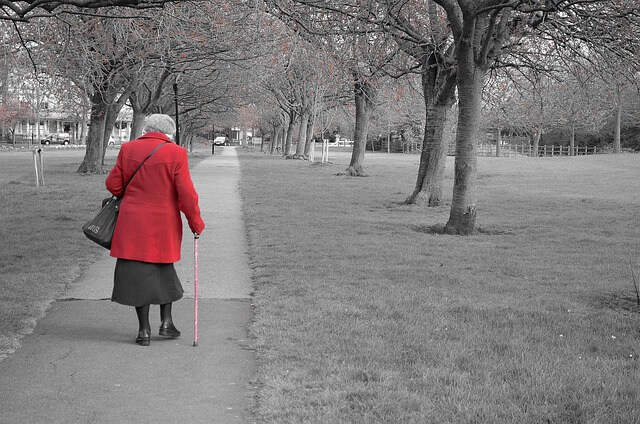
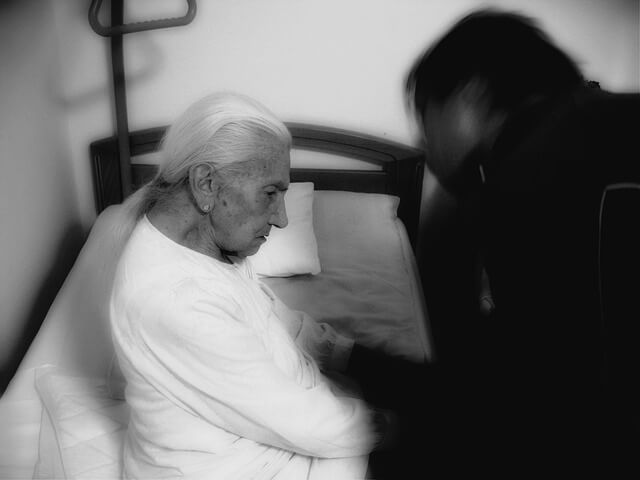
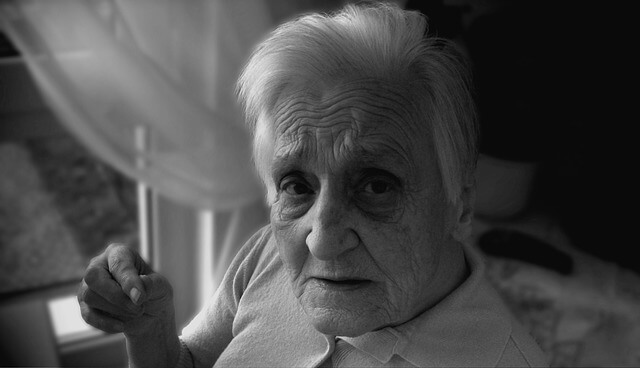
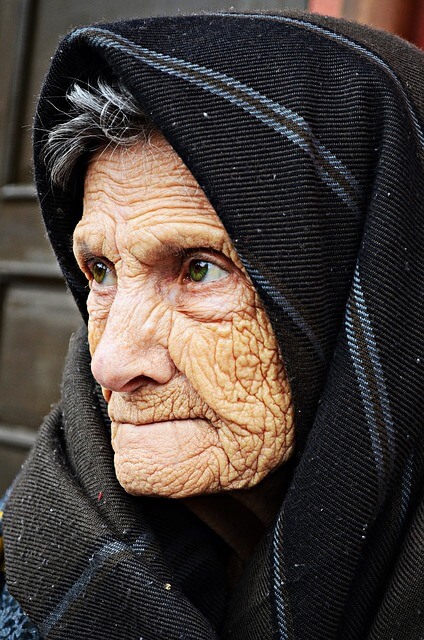
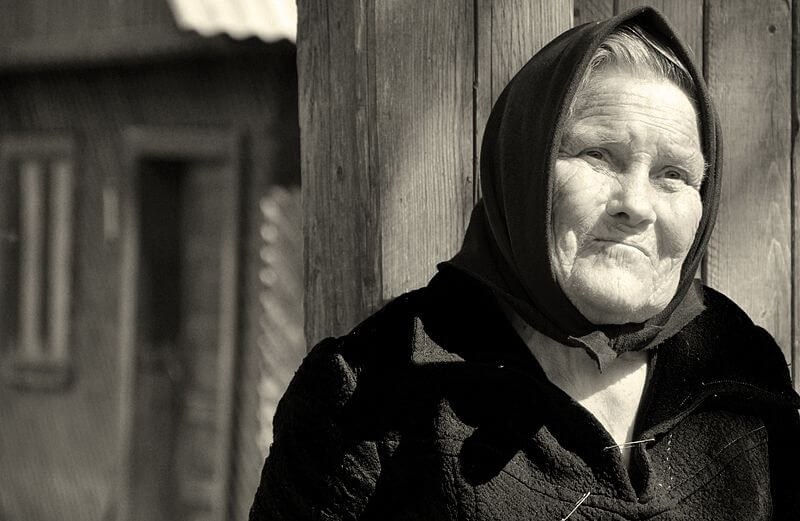
1 reply»